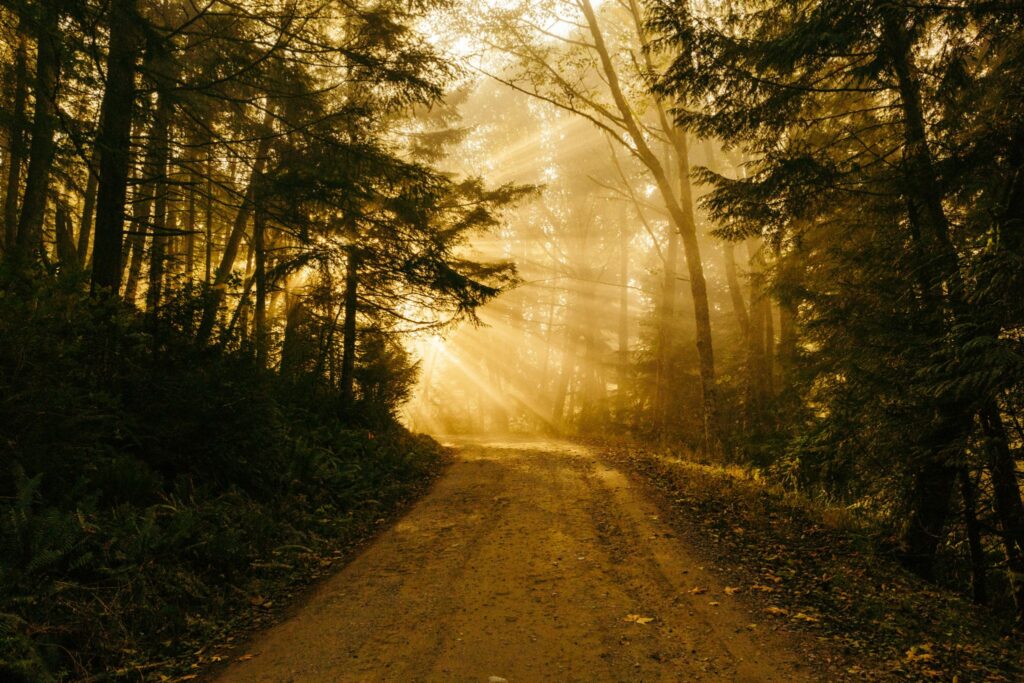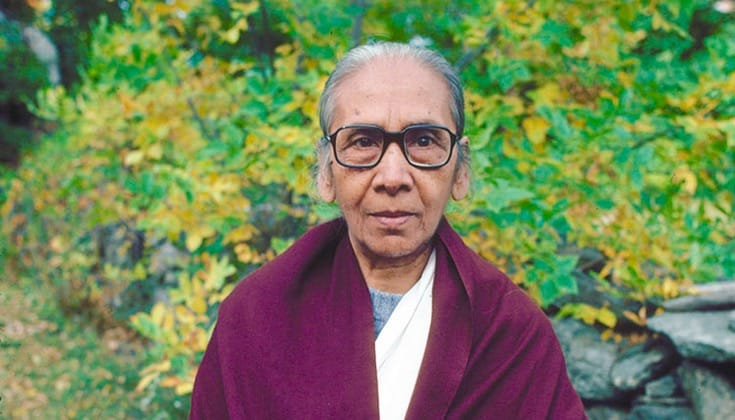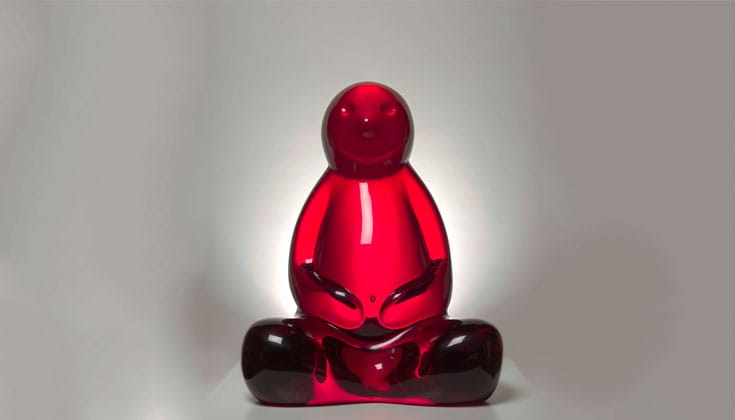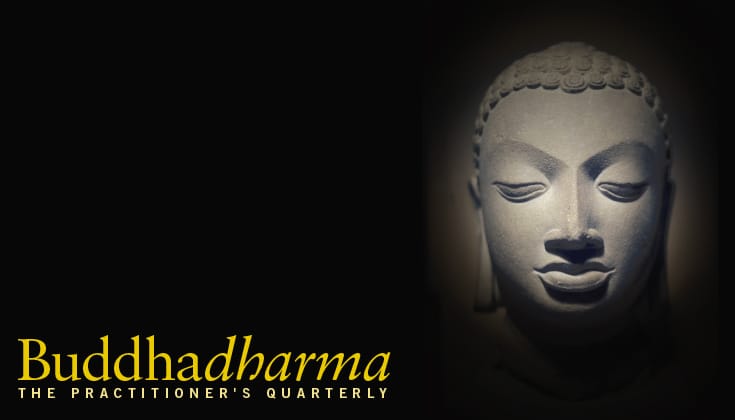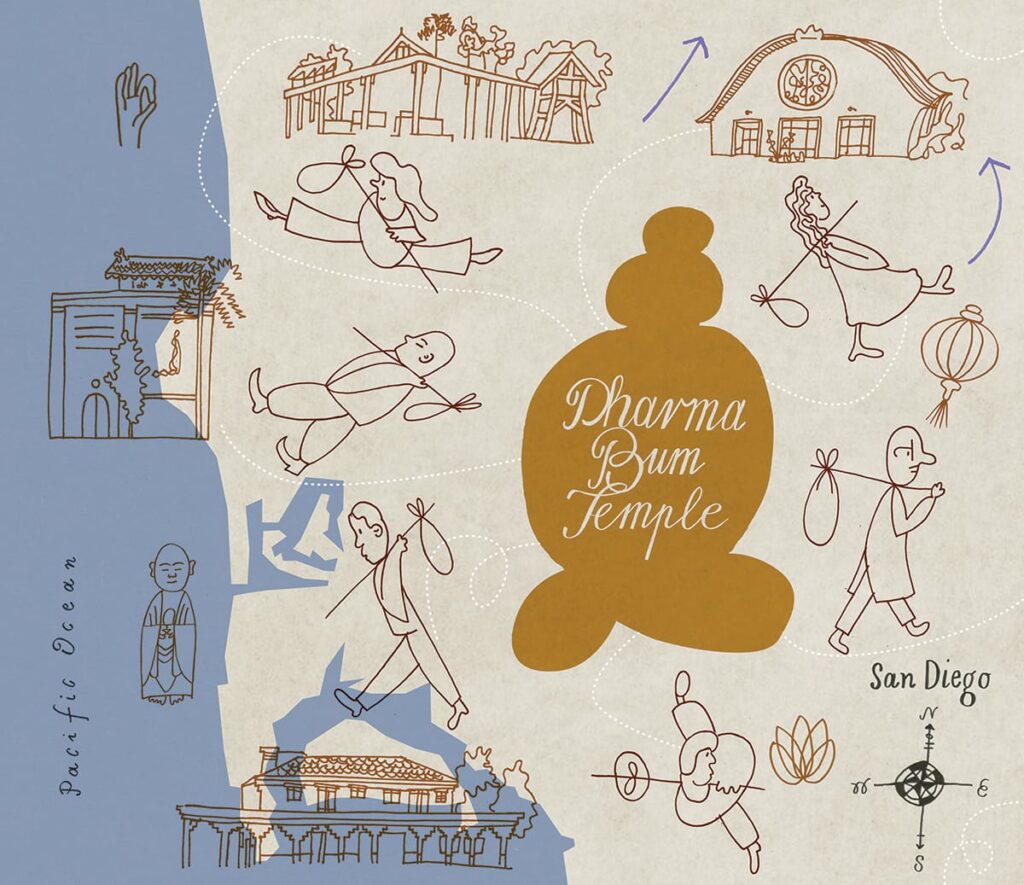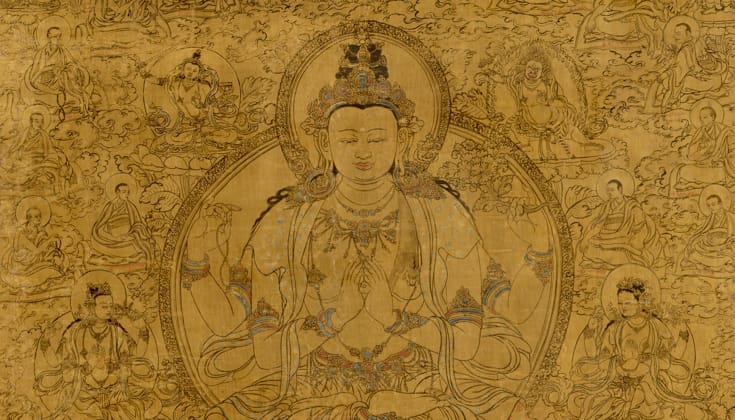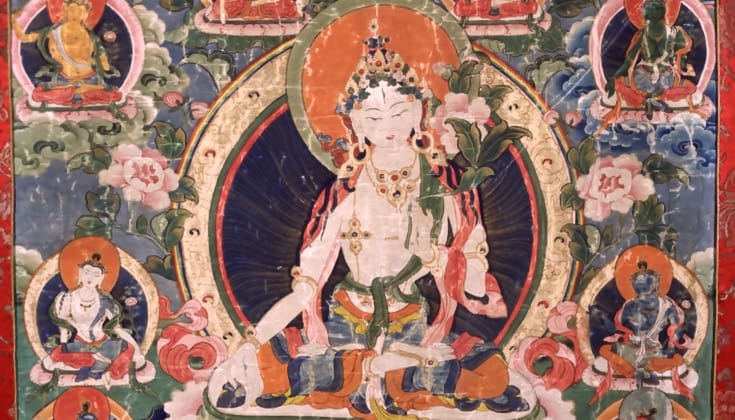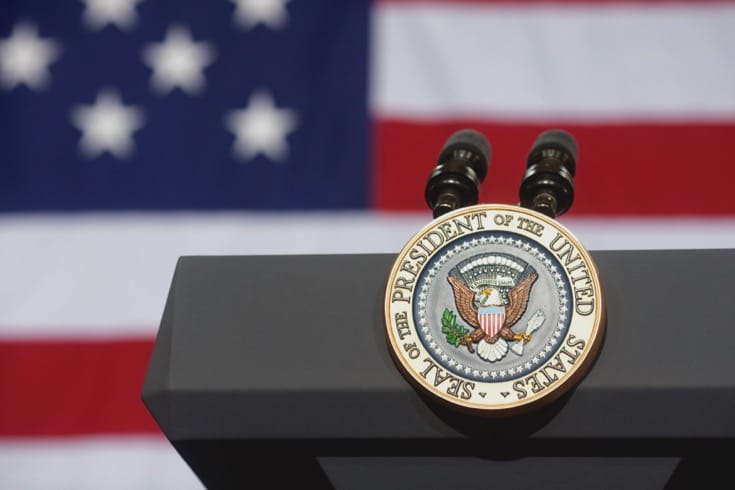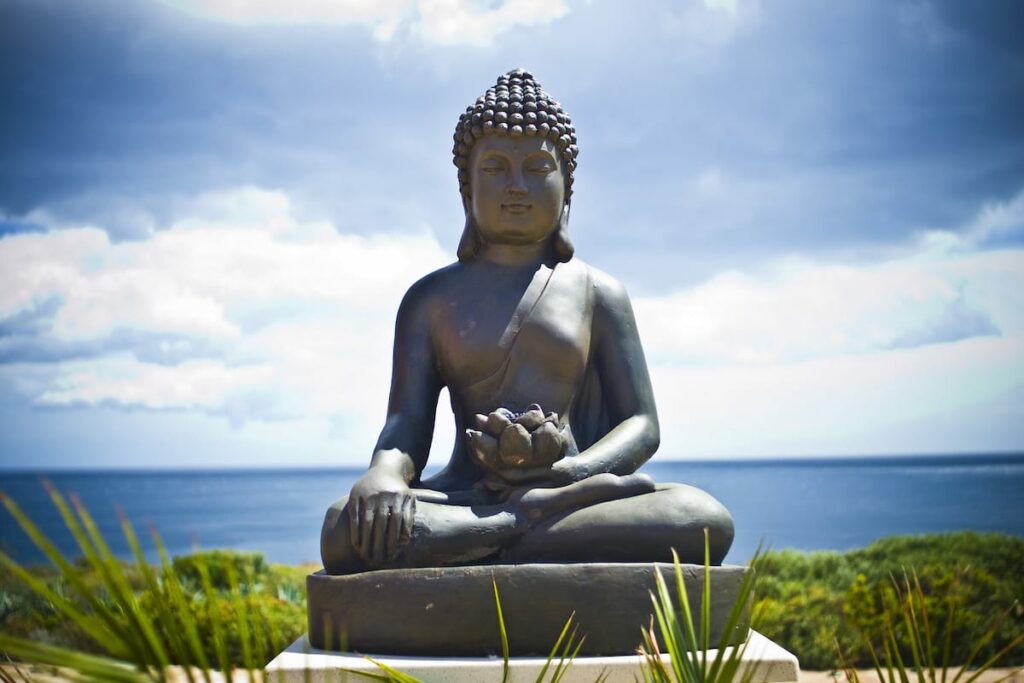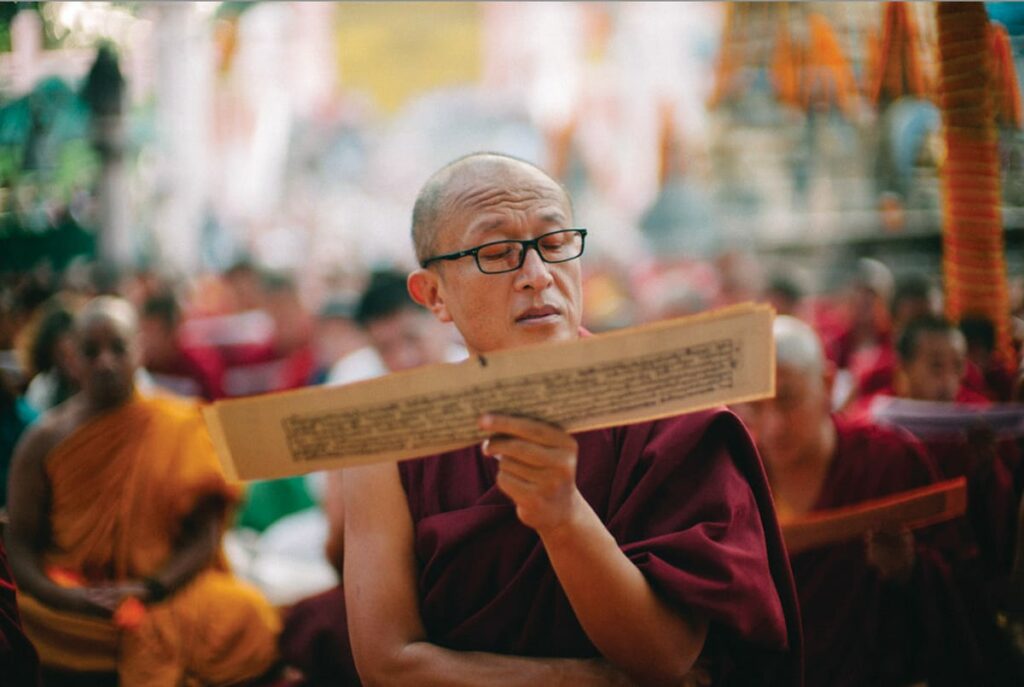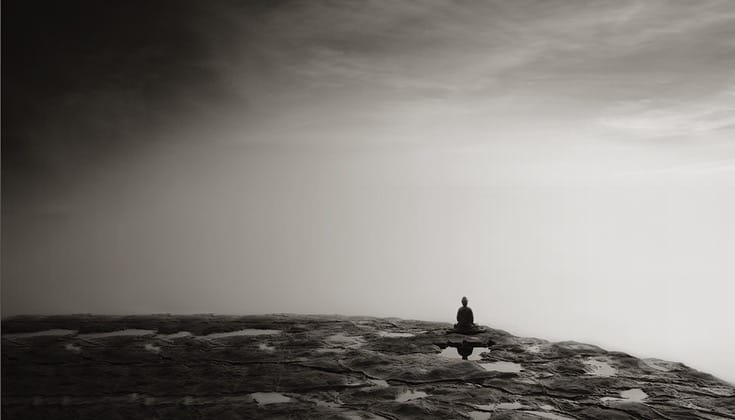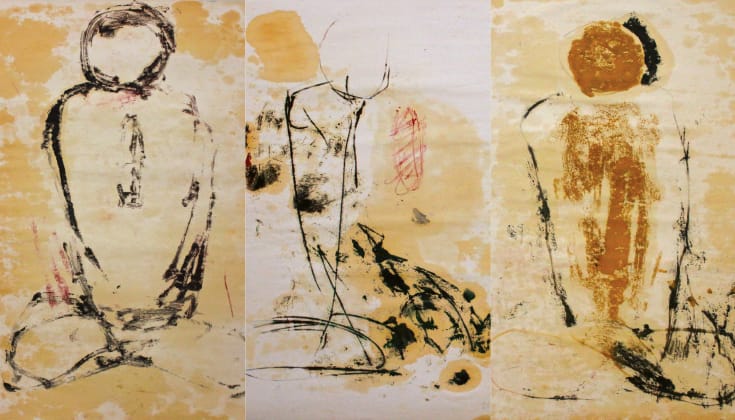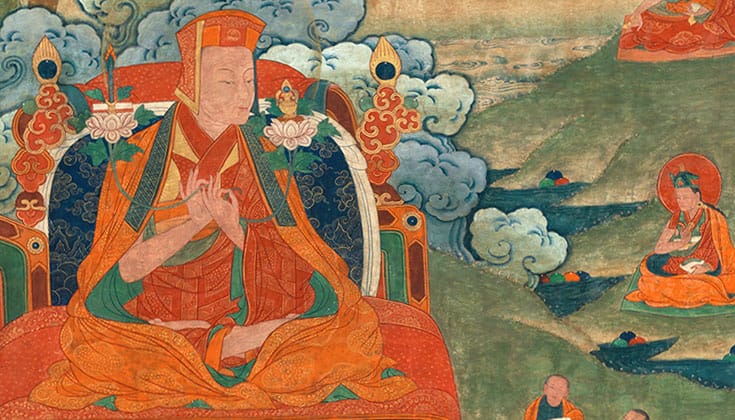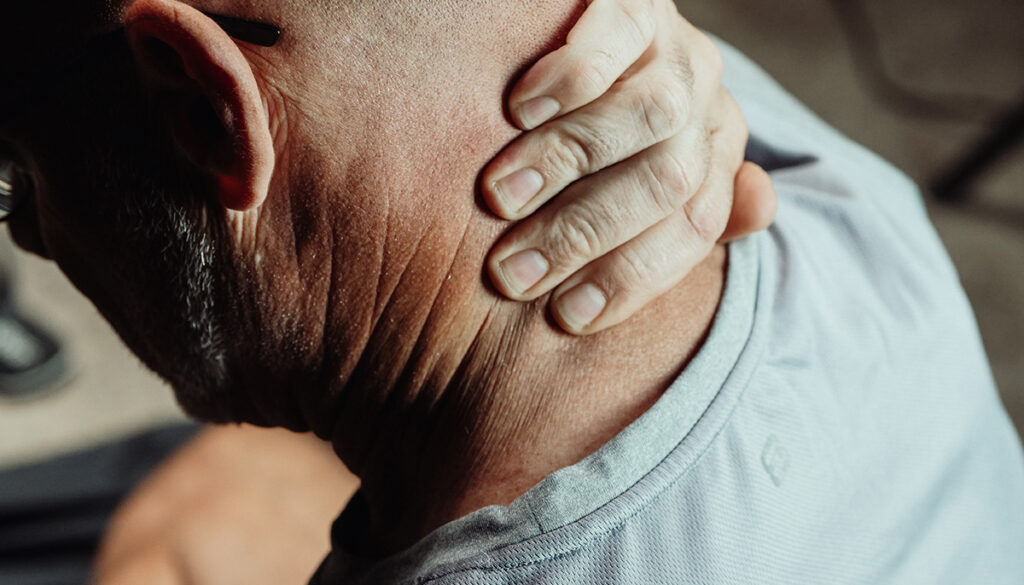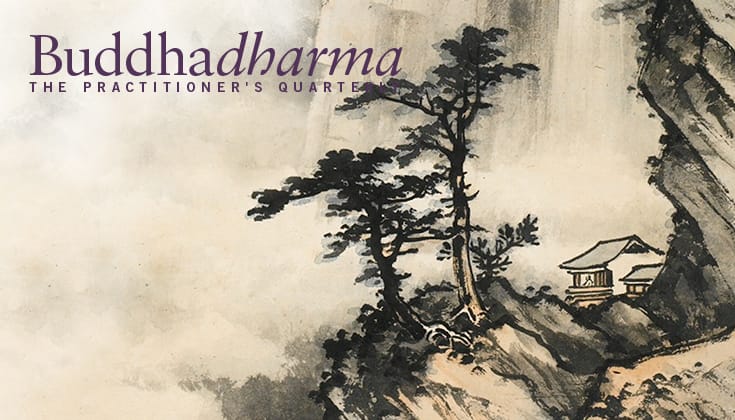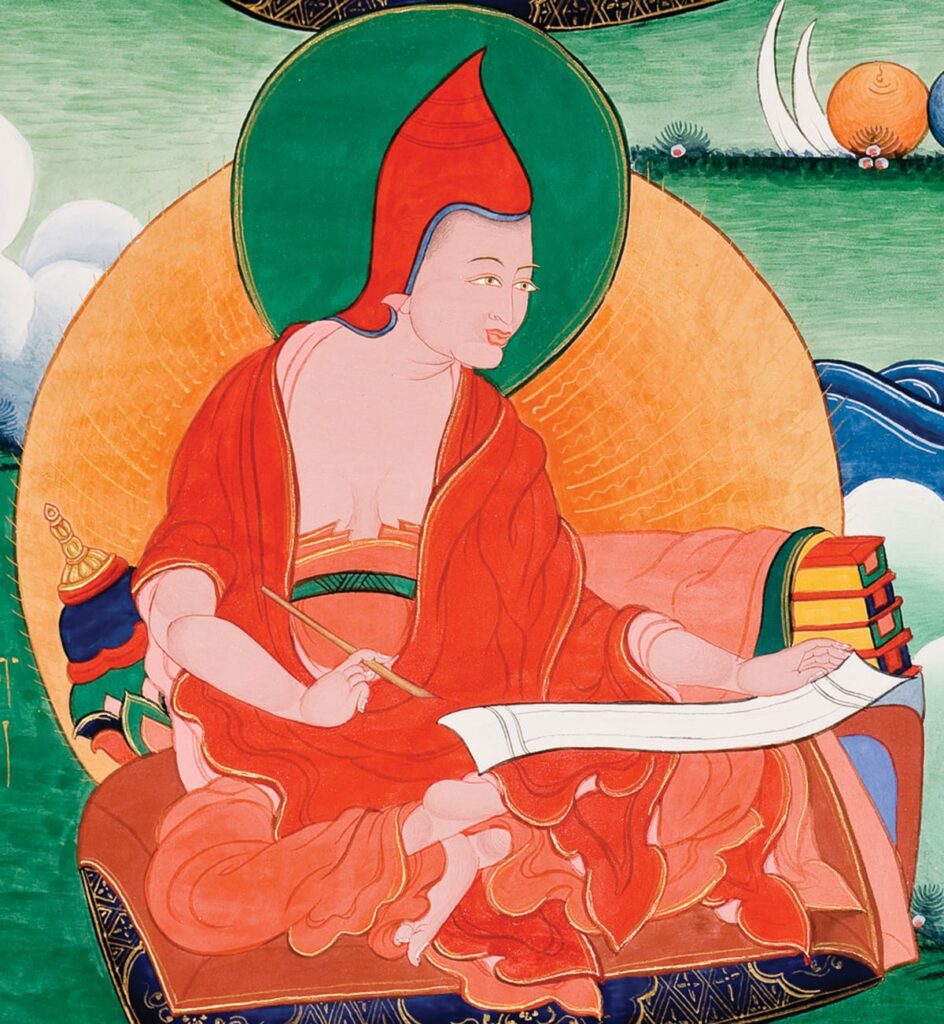Archives: BD Articles
What are “Conditioned Things” in Buddhism?
Reality may seem solid, says Bhikkhu Bodhi, but it is merely a reflection of unstable, conditioned processes, or sankharas, coming together with no one in charge.
The Inexhaustable, Inspiring Dhammapada
Selections from Gil Fronsdal’s translation of the Pali text that has inspired and guided countless practitioners on the Buddhist path.
The Naked Nature of Time
The late Dainin Katagiri Roshi explores Dogen’s concept of Being-Time and how to work with it in our daily lives.
Who Was Dipa Ma?
Dipa Ma, known as "the patron saint of householders," was a primary teacher of Joseph Goldstein and Sharon Salzberg, as well as one of Jack Kornfield’s teachers. Amy Schmidt and Sara Jenkins tell the story of this inspiring female practitioner and meditation teacher.
Buddhist Ethics in the 21st Century
Koun Franz explains what ethics has meant in his own practice.
Inside the Spring 2017 Buddhadharma magazine
The Spring 2017 issue of Buddhadharma is available now. Here is a preview of what you’ll find in the magazine.
Dharma Bum Temple’s New Way to Find a Buddhist Community
Dharma Bum Temple acts as training wheels for new Buddhists and shows them where to go next when they're ready.
In With the Bad Air, Out With the Good
Gehlek Rinpoche on the practice of tonglen, the way to awaken bodhimind by doing exactly the opposite of what your ego wants.
Enlightenment in Female Form
Gelek Rinpoche argues that enlightenment is possible only when female and male energies are both present. Tara practices bring enlightened female energy.
Let’s Stand Up Together
Bhikkhu Bodhi urges Buddhists to be visible advocates of peace, basic sanity, and social justice — causes that, he argues, transcend party politics.
Forum: Are Kleshas Obstacles or Opportunities for Enlightenment?
A forum on Kleshas and their role on the path to enlightenment, with an introduction by Barry Boyce.
How Will You See the Guru?
Are you able to see your teacher as the Buddha? It’s not easy, says Dzongsar Khyentse Rinpoche, but this is where the real path begins.
How to Prepare for a Successful Buddhist Retreat
Christine Skarda has been on retreat for the past twenty-five years. She offers advice on preparing for a successful Buddhist retreat.
Two Truths—Indivisible
When we enter the path, we are working at the level of relative truth, and with practice we may gain insight into the absolute. But we don’t enter the final stage of practice, says Tsoknyi Rinpoche, until we realize these truths were never separate.
Facing My White Privilege
When Tara Brach came to recognize her own white privilege, it revealed blind spots. That changed her as a dharma teacher and leader.
Open View, Solid Ground
Jamgon Kongtrul championed the view of rimay, recognizing the inherent value of all Buddhist teachings. But as Alex Gardner explains, he remained firmly loyal to his own tradition.
Nagarjuna’s Tetralemma: Zen Math Will Never Add Up
Nagarjuna’s four propositions tell us that something may be what it is or it may not; it may be neither or it may be both. This is Zen math.
Pain Is My Built-in Buddha
Bhikkhu Bodhi on the stern but eloquent teachings of chronic pain.
Inside the Winter 2016 Buddhadharma magazine
The Winter 2016 issue of Buddhadharma is available now. Below is a preview of what you’ll find in the magazine.
Book Briefs for Winter 2016
We review "When Awareness Becomes Natural," "Inside Vasubandhu's Yogacara," "Passing Through the Gateless Barrier," and more.

